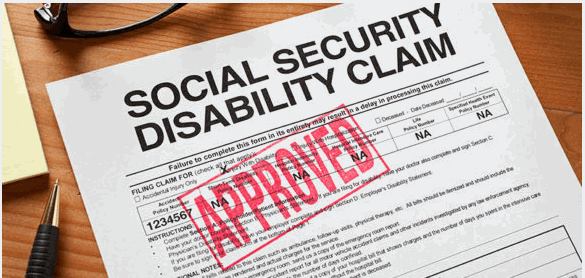At Hoffman, Larin & Agnetti, P.A., we receive multiple calls every day from people across Florida seeking information about Social Security Disability. And the truth is, it’s a complicated process that can feel overwhelming — especially when you’re already struggling with your health.
We’ve been guiding clients through this process for over 40 years. To help you decide whether applying for disability benefits makes sense for you, here’s what we ask every caller — and why your answers matter.
1. Will you be applying, or have you already applied for SSI or SSDI?
Understanding which program you’re applying for is the first step.
- SSDI (Social Security Disability Insurance) is for people who have worked and paid into the system. To qualify, you must have earned enough “work credits” — typically 5 of the last 10 years full-time.
- SSI (Supplemental Security Income) is needs-based and doesn’t require a work history. It’s for people with minimal income and assets.
Why this matters: Your eligibility — and the benefits available — depend on which program you’re applying for.
2. When was the last time you worked — and was it full-time or part-time?
You can’t work full-time and receive disability benefits. Even part-time work may disqualify you if you earn more than a set limit.
- In 2025, you cannot earn more than $1,620/month (gross) and still qualify for disability.
- If you’re currently working full-time, SSA will automatically deny your claim.
Why this matters: Disability is based on your ability to work. If you’re earning over the limit, SSA won’t consider you disabled.
3. How old are you?
Age plays a significant role in SSA’s decision:
- If you’re under 50, you must prove you can’t do any job — not just your former job.
- If you’re 55 or older, SSA applies a more lenient standard under the “grid rules.”
Why this matters: The older you are, the easier it may be to qualify — especially if your job skills don’t transfer easily.
4. What are your medical or psychiatric conditions — and how do they prevent you from working full-time?
Disability is not a determination of whether you are disabled; it’s whether your disability prevents you from holding down a steady job. Social Security relies on its ‘Blue Book’, the list of medical and psychiatric conditions that you need to meet to qualify for disability. Their vocational experts will look at your medical evidence and try to find jobs that you can perform.
SSA doesn’t just ask if you can do your old job — they ask if you can do any job, 40 hours per week, without missing more than 3-4 days a month.
Why this matters: Your condition must make it impossible to sustain full-time work in any field, not just the one you were trained in.
5. Are you under medical or psychiatric care for your condition?
SSA wants to see:
- Recent doctor visits
- Hospitalizations
- Consistent treatment
- Medications prescribed
- Upcoming appointments
Why this matters: Medical records are everything. SSA bases its decision on what your doctors document — not just what you say. If you’re not in treatment, your claim will almost certainly be denied.
6. How long will this take?
This process isn’t fast. In Florida, here’s the timeline and approval rates:
- Stage 1: Initial Application
- Wait time: 8–12 months
- Denial rate: 62%
- Stage 2: Reconsideration (your first appeal)
- Wait time: 6–10 months
- Denial rate: 85%
- Stage 3: Hearing with an Administrative Law Judge (ALJ)
- Wait time: 12–18+ months
- Approval rate: 57%
- With a lawyer: Claimants are 60% more likely to win
Why this matters: You need to prepare for a long process and understand what to expect at each stage.
7. Do I need a lawyer — and how much does it cost?
- You can apply and file the initial application and reconsideration on your own.
At this stage, we ensure that everything is filed correctly, on time, and accompanied by the necessary supporting records. Attorneys can deal directly with the Social Security office on your behalf, taking some of the stress off your shoulders. - But once you reach the hearing stage, having an attorney can make all the difference.
Here’s why:
- A skilled disability attorney will:
- Collect the medical records and prepare medical questionnaires for your treating physicians that enhance your body of medical evidence.
- Prepare you for what to say — and what not to say
- Present your case using medical evidence that matches a “listing” (a set of criteria for specific conditions)
- Cross-examine the vocational expert (VE) who testifies about what jobs you can do
How much does it cost?
- Nothing up front.
- Attorneys are paid 25% of your back pay, capped at $9,200.
- If you don’t win your case, you pay nothing.
Why this matters: Having an attorney gives you a significant edge — especially when you need to make your strongest case in front of a judge.
Bottom Line?
Filing for Social Security Disability is a long and sometimes frustrating process — but knowing what to expect can help you prepare and protect your rights.
We hope this breakdown helps you decide whether to move forward. And if you’re unsure, we’re happy to talk. Your consultation is always free — and we’ve helped hundreds of people in a similar situation.
Hoffman, Larin & Agnetti, P.A. | Serving South Florida for 40+ years
💬 Call today or schedule online — we’re here to help.
Would you like the meta description, keywords, or GMB/Facebook post versions next?





